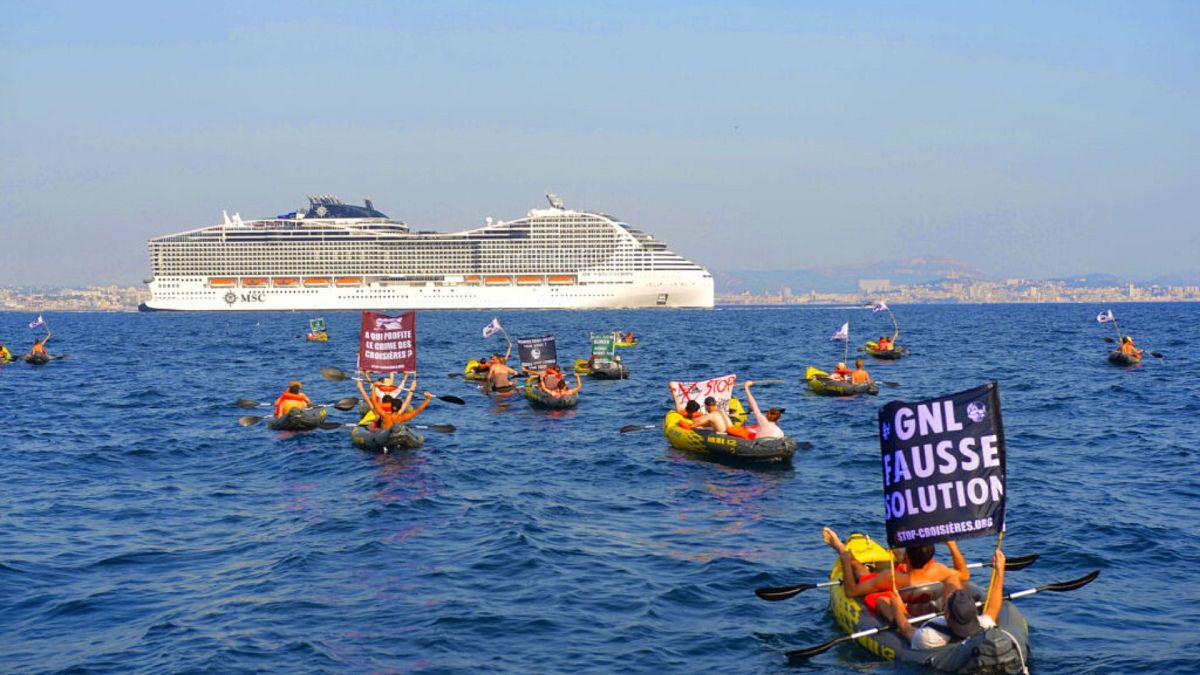Travel
Planning a cruise to Nice? The mayor wants to cancel it

Mayor Christian Estrosi’s Bold Pledge to Combat Overtourism in Nice
In a surprising move during Nice’s New Year’s ceremony, Mayor Christian Estrosi announced a significant decision to tackle overtourism by banning large cruise ships. This bold step, effective from July 1, 2025, aims to preserve the city’s charm and environment. Estrosi emphasized the need to prevent these floating hotels from overwhelming Nice, highlighting the negative impacts of mass tourism and pollution. The ban targets vessels over 190 meters and 900 passengers, reducing cruise passengers by 70%. This decision reflects a growing global trend where cities seek sustainable tourism practices, balancing economic benefits with environmental and social responsibilities.
The Growing Concerns Over Cruise Tourism in Nice
The push against large cruise ships in Nice stems from a combination of factors. Locals have long expressed concerns about overcrowding, environmental degradation, and the strain on local infrastructure. Despite the importance of tourism, which contributes around 40% of the city’s revenue, the influx from cruise ships often fails to benefit local businesses significantly, as passengers typically spend more on-board than ashore. This economic dynamic, coupled with environmental worries, has led to a reevaluation of cruise tourism’s role in Nice’s future.
The Environmental Impact of Cruise Ships
Cruise ships are notorious environmental offenders, emitting substantial pollutants like CO2, sulfur dioxide, and nitrogen oxides, far exceeding emissions from planes. These emissions contribute to air quality issues and acid rain, while wastewater and toxic metals harm marine life. The ban in Nice aligns with a broader movement seen in cities like Venice, Mallorca, and Barcelona, which have already imposed restrictions. By targeting large ships, Nice aims to reduce its ecological footprint, promoting a cleaner, healthier environment for residents and visitors alike.
Economic Considerations and the Cruise Industry’s Response
The economic implications of the ban are complex. While cruise lines argue that each passenger contributes around $100 daily, local studies suggest much lower spending. This discrepancy raises questions about the industry’s true economic benefit. The Cruise Lines International Association (CLIA) criticized the ban, arguing it unfairly targets the industry and its passengers. However, the ban doesn’t apply to smaller, luxury cruises, which may continue to visit, suggesting an attempt to balance economic needs with environmental and social concerns.
Mixed Reactions from Locals and Environmental Groups
Reactions to the ban are varied. Environmentalists and locals who have campaigned against cruise ships welcome the decision as a step forward. However, some critics argue it doesn’t go far enough, as smaller luxury ships are still permitted. This partial ban leaves questions about its effectiveness in addressing all environmental and social issues. Meanwhile, the contrast with Nice’s airport expansion, which aims to increase passenger capacity, highlights inconsistencies in the city’s approach to sustainable development.
Challenges in Implementing the Ban and Future Implications
Implementing the ban presents significant challenges. Port and chamber of commerce authorities, beyond the mayor’s direct control, will ultimately decide. Despite Estrosi’s influence from past roles, enforcement remains uncertain. Additionally, scheduled cruises for 2025 complicate the ambitious July 2025 deadline. Critics suggest the ban may be more symbolic, especially as passengers can still disembark via shuttles from anchored ships. This move reflects broader debates on balancing tourism’s economic benefits with environmental and social costs, setting a precedent for other cities considering similar measures.











